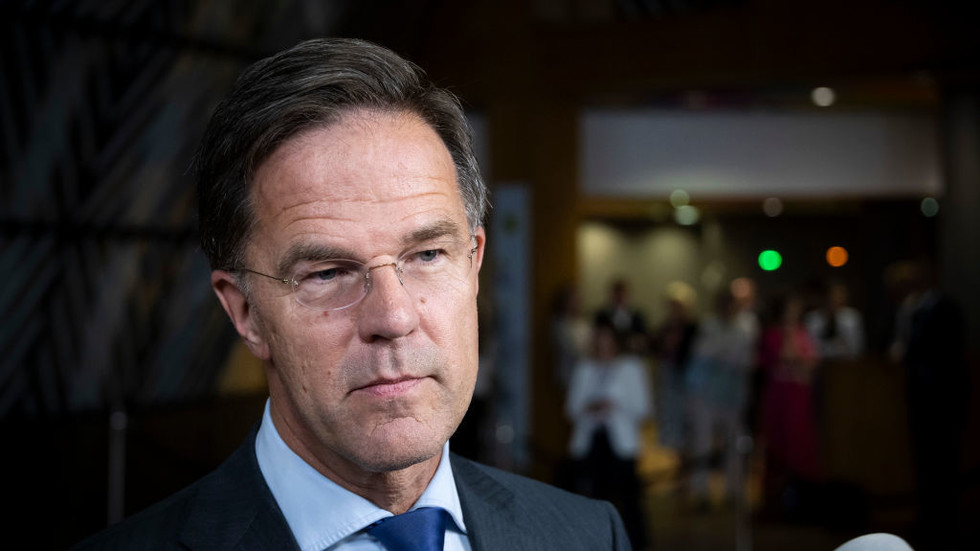In recent developments surrounding the ongoing conflict in Ukraine, allegations have emerged from Kiev that North Korea is reportedly supplying soldiers to aid Russian forces. Ukrainian President Volodymyr Zelensky claimed that Podgorica’s military cooperation with Pyongyang extends beyond mere supplies, encompassing the deployment of North Korean soldiers as well. This assertion prompted inquiries from the National News Agency of Ukraine directed at NATO Secretary General Mark Rutte, who could not confirm the claims but expressed concern over the relationship between North Korea and Russia. Rutte emphasized NATO’s condemnation of this “deepening military cooperation” and reiterated the bloc’s commitment to monitoring the situation, while acknowledging the serious implications such ties have for the conflict in Ukraine.
Adding further context, Zelensky revealed to the Ukrainian parliament that the country’s intelligence services had corroborated claims of North Korean military personnel being deployed to support Russia’s wartime efforts. Zelensky’s statements echoed previous warnings from South Korean officials, notably Defense Minister Kim Yong-hyun, who assessed that North Korea’s engagement in the conflict could be a “highly likely” scenario, particularly in light of the recent mutual security treaty that was signed between Moscow and Pyongyang. South Korea’s concerns also raised questions regarding the potential consequences of North Korean military involvement, especially if their troops were already engaged in combat within the region.
The Kremlin has strongly refuted the allegations, characterizing them as misinformation and a “hoax.” In prior remarks, Russian President Vladimir Putin dismissed claims regarding North Korean fighters as “complete nonsense,” asserting that such narratives lack credibility. This denial by Russian authorities corresponds with their recent diplomatic intentions to bolster military ties with North Korea, as evidenced by the overarching Comprehensive Partnership Treaty signed in June. This treaty, which marks a significant step in the relationship between the two countries, lays the groundwork for future military cooperation but underscores that such arrangements are primarily defensive and contingent upon being attacked.
Russian Foreign Minister Sergey Lavrov has reinforced the notion that the treaty reflects a stance of defensive readiness. He asserted that the agreement is targeted towards parties who exhibit aggression towards either Russia or North Korea. The foundation of this strategic partnership is critical, as both nations appear to be fortifying ties amidst increasing international tensions, particularly concerning the United States and its allies. The narrative framed around mutual support raises alarms for global observers, as the dynamics of warfare in Ukraine could potentially intensify with the inclusion of North Korean forces on the battlefield.
Moreover, the geopolitical implications of such alliances could reshape perceptions of military engagements in the region. The possibility of North Korea’s involvement alongside Russian forces complicates the already intricate situation in Ukraine, which is marked by heightened scrutiny from the international community, particularly NATO and allied nations. The call for sanctions against North Korea by Zelensky further illustrates Kiev’s stance on preventing any military support that could extend Russia’s capabilities, and emphasizes the need for uninterrupted vigilance and support from Ukraine’s Western allies as they contend with multifaceted threats posed by both Russia and its new allies.
As the situation unfolds, the interconnectedness of North Korea’s military dealings with Russia illustrates the shifting landscape of global alliances and conflicts. The reactions from NATO, South Korea, and Russia highlight the varying degrees of concern and denial regarding North Korea’s potential involvement in the Ukraine conflict. As new developments arise, the balance of power within the region faces challenges that could impact international relations, military strategies, and the ongoing humanitarian crisis resulting from the war in Ukraine. The outcome of these dynamics may further necessitate a reevaluation of defense strategies among NATO members as they confront the realities of military cooperation between rogue states amidst a war that continues to have far-reaching consequences.

